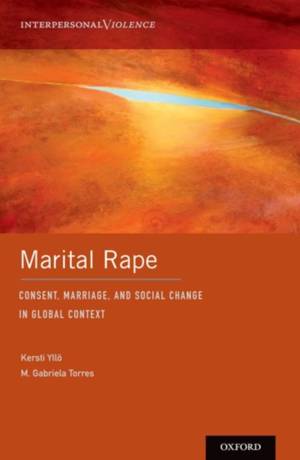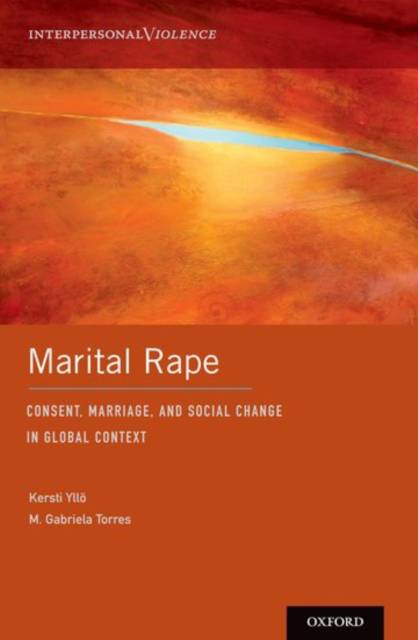
- Retrait gratuit dans votre magasin Club
- 7.000.000 titres dans notre catalogue
- Payer en toute sécurité
- Toujours un magasin près de chez vous
- Retrait gratuit dans votre magasin Club
- 7.000.0000 titres dans notre catalogue
- Payer en toute sécurité
- Toujours un magasin près de chez vous
Marital Rape
Consent, Marriage, and Social Change in Global Context
177,45 €
+ 354 points
Description
Rape in marriage is a global problem affecting millions of women -- it is still legal in many countries and was only criminalized in all U.S. states in 1993. In much of the world, marital rape is too often understood as an oxymoron due to the fact that the ideology of permanent consent underlies the legal and cultural definitions of sex in marriage. From Vietnam to Guatemala to South Africa and beyond, this volume examines how cultural, legal, public health, and human rights policies and practices impact intimate partner violence. While legal and cultural conceptions of marital rape vary widely -- from criminal assault to wifely duty -- this volume offers evidence from different societies that forced sex undermines the physical and psychological well-being of the women who experience it, regardless of their cultural context. Globally, the nature of marriage is changing and so are notions of individual choice, love, intimacy, and rigid gender roles. Marital Rape documents wide ranging and fluid understandings of sex, consent, and rape in marriage; such an array of perspectives demands an international and interdisciplinary approach to the study of sex and gender-based violence. This text brings together an international group of scholars from the fields of anthropology, sociology, criminology, law, public health, and human rights; their work points to the importance of understanding the lived experience of sexual violence for the design of effective and culturally sensitive public policy and practice.
Spécifications
Parties prenantes
- Editeur:
Contenu
- Nombre de pages :
- 262
- Langue:
- Anglais
- Collection :
Caractéristiques
- EAN:
- 9780190238360
- Date de parution :
- 06-06-16
- Format:
- Livre relié
- Format numérique:
- Genaaid
- Dimensions :
- 157 mm x 236 mm
- Poids :
- 498 g

Les avis
Nous publions uniquement les avis qui respectent les conditions requises. Consultez nos conditions pour les avis.





